14 Natural Solutions For Digestive Issues And Prevention Advice
Put your digestive cycle back on track using cheap, accessible solutions.

We all occasionally encounter intestinal issues. In the US, 34 million people experience intestinal issues. You may get stomach issues due to dehydration, eating the incorrect foods frequently, or eating too much food too quickly. The good news is that you can try some easy home remedies for digestive issues to ease the symptoms. In this post, we examine the root causes of these difficulties as well as some preventative measures you can take to further ward off digestive troubles.
What's Written Here
- What are digestive issues exactly?
- Digestive Problems: Types, Causes, and Signs and Symptoms
- How To Naturally Treat Digestive Issues
- Prevention Advice on Diet
- Frequently Asked Questions
What are digestive issues exactly?
Your body's digestive system, which extends from your mouth to your rectum, is both intricate and essential. It stimulates the excretion of waste and aids the body's ability to absorb numerous crucial nutrients.
Different forms of digestive issues might be present with various symptoms. These problems can result in complications and chronic illnesses if they are not addressed. Below, we've covered a few typical intestinal problems.
Digestive Problems: Types, Causes, and Signs and Symptoms
The information below will give you an understanding of many of the many digestive issues:
1. Regular bowel movements
This occurs when your digestive system is temporarily unable to eliminate waste from your body.
cause
When your colon cannot transit stools through the rest of your digestive tract, it results.
Symptoms
Bloating
Continent pain
less frequent bowel motions
2. Food Intolerance
This occurs when certain foods are intolerable to your digestive system. Food intolerance, as icontrast to food allergies, only affects digestion. s
cause
The autoimmune condition Celiac disease, which is also a frequent type of food intolerance, When gluten is consumed, digestive issues come up. The causes can be anything from the body lacking a specific digestion enzyme to the presence of specific substances in the diet.
Symptoms
The following are signs of food intolerance:
- stomach pains
- Bloating \Headache
- Diarrhea
- Gas \Irritability
- Vomiting \Nausea
3. GERD
A digestive disorder called gastroesophageal reflux disease (GERD), which is brought on by persistent heartburn, can potentially harm your esophagus.
cause
Your chest may hurt and burn as a result of stomach acid traveling up your esophagus. Heartburn is the medical term for this. GERD develops as a result of frequent untreated heartburn.
Symptoms
- Tension in the chest
- wet cough
- An unpleasant aftertaste and trouble swallowing
4. Inflammatory Bowel Diseases
A section of the digestive tract may be affected by inflammatory bowel disease (IBD). It may be
divided into two categories:
• Ulcerative colitis, a condition that only impacts the colon
• Crohn's disease, which impacts the small intestine and colon,
cause
Although the precise origin is uncertain, IBD is frequently linked to genetics (a family history of the condition) and immune system issues.
- Symptoms
- Fatigue
- Irregular bowel motions
- Loss of weight
- reduced appetite
- The rectus is bleeding.
- sweats at night.
Now that you have a good knowledge of the main categories of digestive problems, let's look at how they can be treated using easy natural home remedies.
How To Naturally Treat Digestive Issues
- Chamomile Tea
- Apple Cider Vinegar
- Ginger
- Coriander
- Pumpkin
- Peppermint
- Fennel seeds
- Black Pepper
- Aloe Vera
- Turmeric
- Yogurt
- Vitamin D
- Green Tea
- Lemon Juice
Digestive Issues And Prevention Advice Book: Get it t o here
1. Chamomile Tea

You will need
Chamomile tea, 1 teaspoon
water, 1 cup
Honey
What You Need to Do
Pour a cup of water over a teaspoonful of chamomile tea.
In a saucepan, bring it to a boil.
After 5 minutes of simmering, straining
Let the tea cool a little before adding some honey.
Take the tea straight away.
How Frequently Should You Do This?
For best results, consume this twice daily.
Why It Functions
Due to its anti-inflammatory and antispasmodic characteristics, chamomile has long been used as a treatment for different digestive problems such cramps, diarrhea, and irritable bowel syndrome (1). The tea can relax the muscles in your intestines and ease discomfort and soreness in your stomach.
2. Apple Cider Vinegar
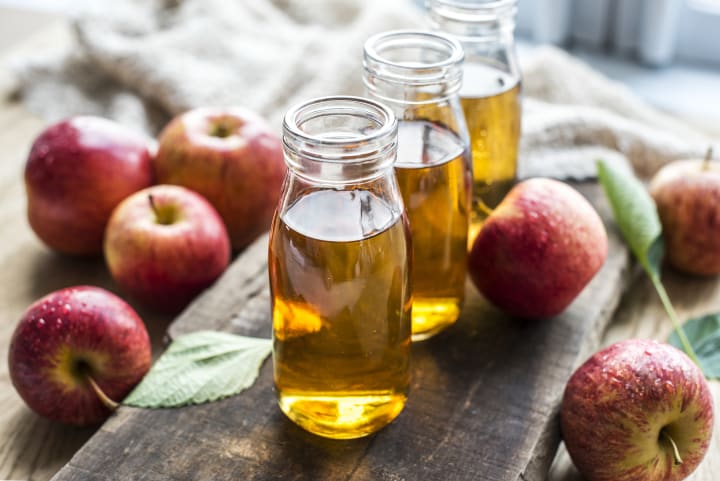
You will need
a teaspoon of unpasteurized apple cider vinegar
one cup of hot water
What You Need to Do
Warm water should be added to a spoonful of raw apple cider vinegar.
Mix thoroughly, then drink each day.
How Frequently Should You Do This?
This must be done once or twice each day, ideally before meals.
Why It Functions
Digestive fluids that help with digestion by breaking down food are secreted more readily when apple cider vinegar is consumed. Additionally, it soothes typical digestive problems like indigestion and heartburn (2).
Caution
Avoid apple cider vinegar if you have issues with stomach emptying, as it may make things worse.
3. Ginger
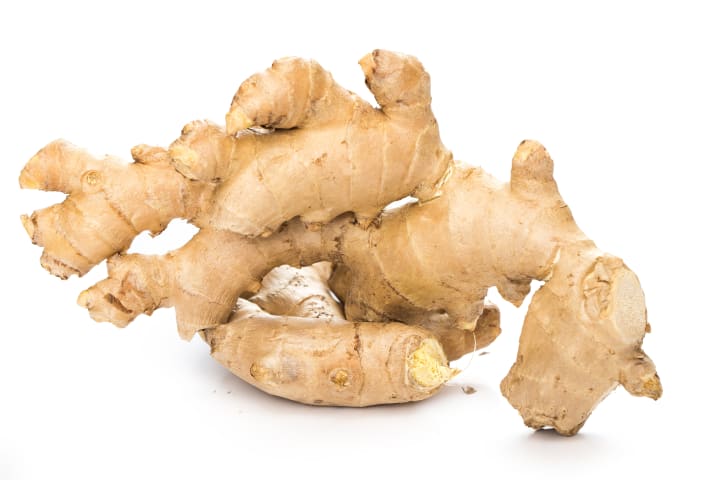
You will need
One teaspoon of minced ginger.
water, 1 cup
Honey
What You Have to Do
To a cup of water, add a teaspoon of minced ginger.
In a saucepan, bring it to a boil.
Cook while strained.
Add some honey to the tea once it has cooled a bit.
Consume the tea before it gets cold.
How Frequently Should You Do This?
Before meals or before bed, you must have this two to three times.
Why It Functions
Ginger is a versatile herb that helps with digestive issues. Because of its carminative properties, it can aid in bloating, gas, and nausea and vomiting symptoms.
4. Coriander Seeds
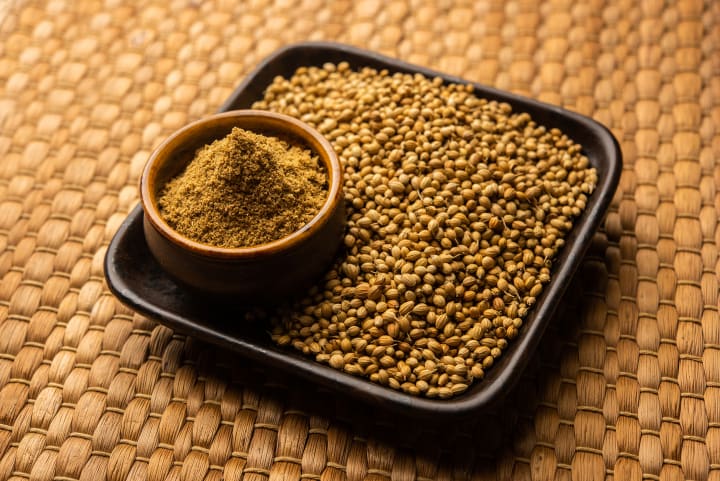
You will need
seeds from 1 teaspoon of coriander
water, 1 cup
Honey
What You Should Do
In a saucepan, bring a teaspoon of coriander seeds to a boil.
Cook while strained.
Add a little honey to the tea when it has cooled.
Consume it straight away.
How Frequently Should You Do This?
You must consume this once every day.
5. Pumpkin
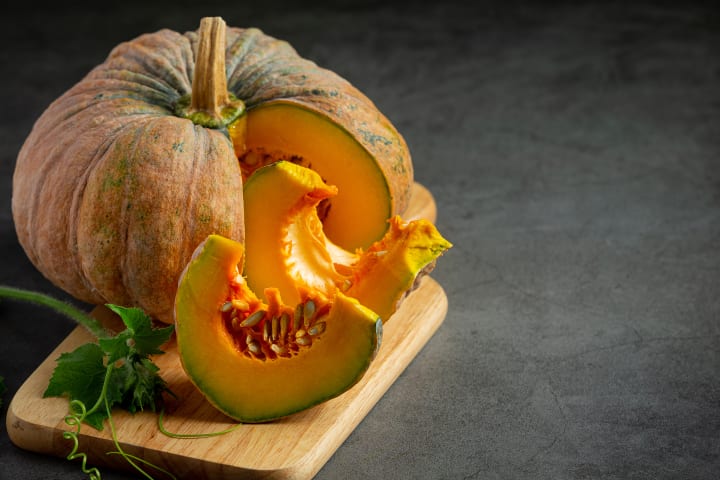
You will need
a little bowl of pumpkin slices
What You Should Do
Cook pumpkin slices by cutting them into thin pieces.
Simply eat the pieces by themselves or add them to your favorite soups and smoothies.
How Frequently Should You Do This?
You have had to eat one pumpkin every day for a few weeks.
Why It Functions
Pumpkins are low in carbohydrate and sugar and high in fiber. They are delicious and excellent for treating digestive issues including diarrhea and constipation.
6. Peppermint
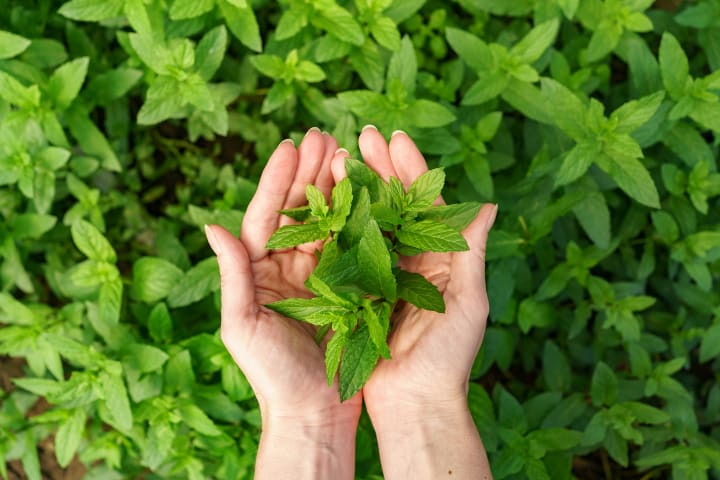
You will need
fresh peppermint leaves, about 1-2 tablespoons
Honey, 2 cups of water
What You Need to Do
Crush up one to two tablespoons of peppermint leaves.
In a saucepan, combine the leaves with two cups of water and bring them to a boil.
Cook while strained.
Add some honey to the tea when it has had a chance to cool.
Take the tea right away.
How Often Should You Do This?
You must have this tea 1–2 times each day.
Why It Works
Because of the anti-inflammatory and antispasmodic properties of menthol, peppermint can help treat digestive disorders like irritable bowel syndrome (6). Additionally, it might lessen any accompanying discomfort and stomach pain.
Caution
If you have heartburn or nausea, you shouldn't take this medication. Your situation can worsen.
7. Fennel Seeds
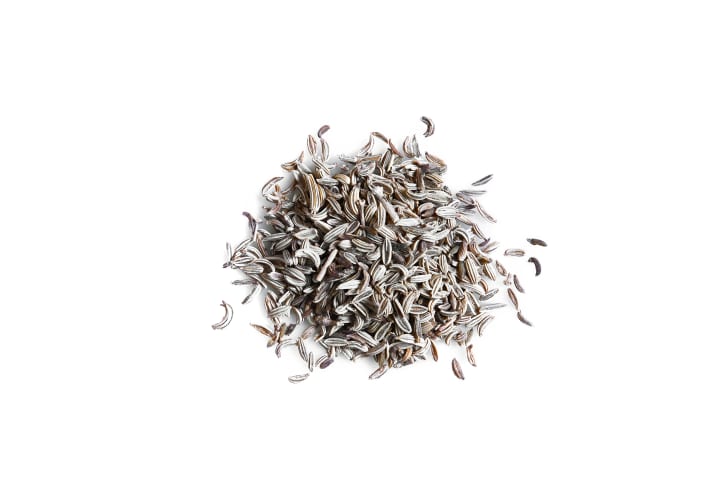
You will need
Fennel seeds, 1 teaspoon
water, 1 cup
What You Need to Do
Add a teaspoon of fennel seeds to a cup of water.
In a saucepan, bring it to a boil.
Cook while strained.
You can drink the fennel water once it has cooled.
How Frequently Should You Do This?
This mixture must be consumed two to three times daily before meals.
Why It Functions
As a digestive aid and carminative, fennel is frequently used. Its anti-inflammatory and antispasmodic qualities reduce bloating and colic-related stomach pain and abdominal discomfort (7)..
Digestive Issues And Prevention Advice Book: Get it hear
8. Black Pepper
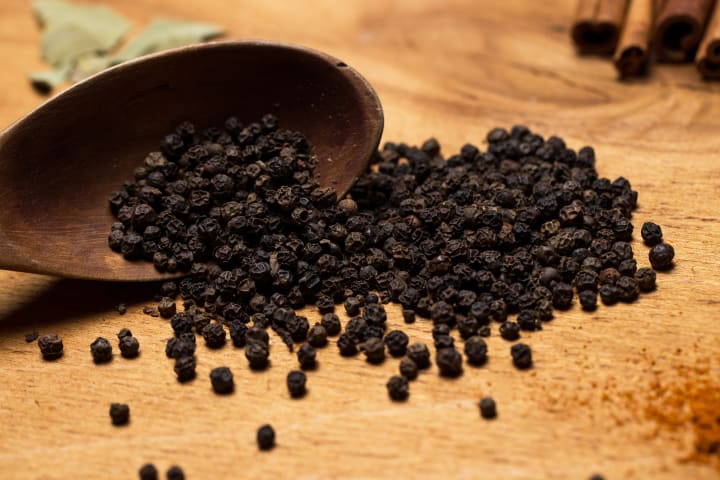
You will need
the black peppercorns (seasoning)
What You Should Do
To season your favorite foods and salads, add ground black pepper.
How Frequently Should You Do This?
You have to carry out this routinely.
Why It Functions
Black pepper's piperine has antispasmodic properties that treat digestive issues like diarrhea and constipation .
9. Aloe Vera

What You Need to Do
a daily dose of two teaspoons of fresh aloe juice.
How Frequently Should You Do This?
This has to be done once per day.
Why It Functions
Barbaloin, aloin, and aloe-emodin are laxative substances found in aloe vera that encourage regular bowel motions. They also aid in the treatment of flatulence, bloating, and indigestion. Aloe vera's anti-inflammatory properties defend the gut lining and ease discomfort in the intestines (9).
10. Turmeric
You will need
- 1 teaspoon of powder turmeric
- one water glass
- Honey
What You Should Do
To a glass of water, stir one teaspoon of turmeric powder.
Add some honey and continue to heat it.
ingest the concoction.
How Frequently Should You Do This?
For the intended results, drink this once every day.
Why It Functions
Turmeric's anti-inflammatory and antioxidant effects, found in the compound curcumin, improve digestive health and shield your intestines from further harm (10).
11. Yogurt
What You Need to Do
One tiny cup of probiotic yogurt is required.
What You Need to Do
ingest a small cup of yogurt with probiotics.
How Frequently Should You Do This?
Yogurt must be a regular part of your diet.
Why It Functions
Probiotics, the beneficial bacteria that are identical to the microflora in your stomach, are abundant in yogurt. These serve as your intestine's first line of defense against illness and infection (11).
12. Vitamin D
You will need
20 to 100 mg of vitamin D are required.
What You Need to Do
Consume foods like yogurt, salmon, cereals, soy, and eggs that are high in vitamin D.
You can also take vitamin D pills. However, see your doctor first.
How Frequently Should You Do This?
You have to carry out this routinely.
Why It Functions
Like probiotics, vitamin D replenishes the beneficial gut flora. Additionally, it enhances metabolism and aids in the treatment of digestive issues including inflammatory bowel disease (12).
13. Green Tea
You Will Need
½ teaspoon of green tea
1 cup of water
What You Have To Do
Add half a teaspoon of green tea to a cup of hot water.
Brew for 3 to 4 minutes and strain.
Drink the green tea.
How Often You Should Do This
You must drink green tea at least twice daily.
Why This Works
Green tea is an excellent source of polyphenols. Once inside your gastrointestinal tract, green tea activates intracellular antioxidants, which prevents damage to your gastrointestinal tract .
14. Lemon Juice
- You Will Need
- ½ lemon
- 1 glass of warm water
- Honey
What You Have To Do
Extract the juice of half a lemon and add to a glass of water.
Mix well and add some honey for flavor.
Consume right away.
How Often You Should Do This
You must drink the juice daily, preferably before breakfast.
Why This Works
Lemon juice flushes toxins out of your body and refreshes and rehydrates it. The juice also boosts metabolism, thereby aiding digestion and helping curb obesity .
What you eat and don’t eat has a major role to play in treating your digestive problems. In addition to the remedies listed above, the following diet tips will also help.
Diet Advice
There are foods that improve digestive health as well as foods that can worsen an already present issue. You must therefore pay attention to your dietary habits. To effectively treat digestive issues, we are here with two lists of foods: one that you should consume more of and the other that you should avoid.
Foods That Work Best For Treating Digestive Issues
- Yogurt
- Kimchi
- Lean fish and meat
- Bananas
- Moderate amounts of ginger
- Foods That Can Aggravate Digestive Problems
- Fried foods
- Chili peppers
- Dairy
- Alcohol
- Certain berries
- Chocolate
- Caffeinated drinks like tea, coffee, and soft drinks
- Corn
You also need to make a few changes to your daily lifestyle choices to prevent the recurrence of digestive issues. Here are some tips that will undoubtedly help.
Preventive Advice
- Stop smoking.
- Limit your intake of acidic and fatty foods.
- Eat a balanced, high-fiber diet.
- Engage in brief workouts at least five days per week.
- Avoid using aspirin on a regular basis.
- Avoid using sulfa medications and steroids (unless your doctor says otherwise).
Frequently Asked Questions
- What vegetables aid in digestion?
Cruciferous vegetables (like broccoli, cauliflower, Brussel sprouts, and cabbage), leafy greens (like kale and spinach), artichokes, and beetroot may help digestion.
- Does honey help with digestion?
Yes, honey is good for digestion and may help treat diarrhea.
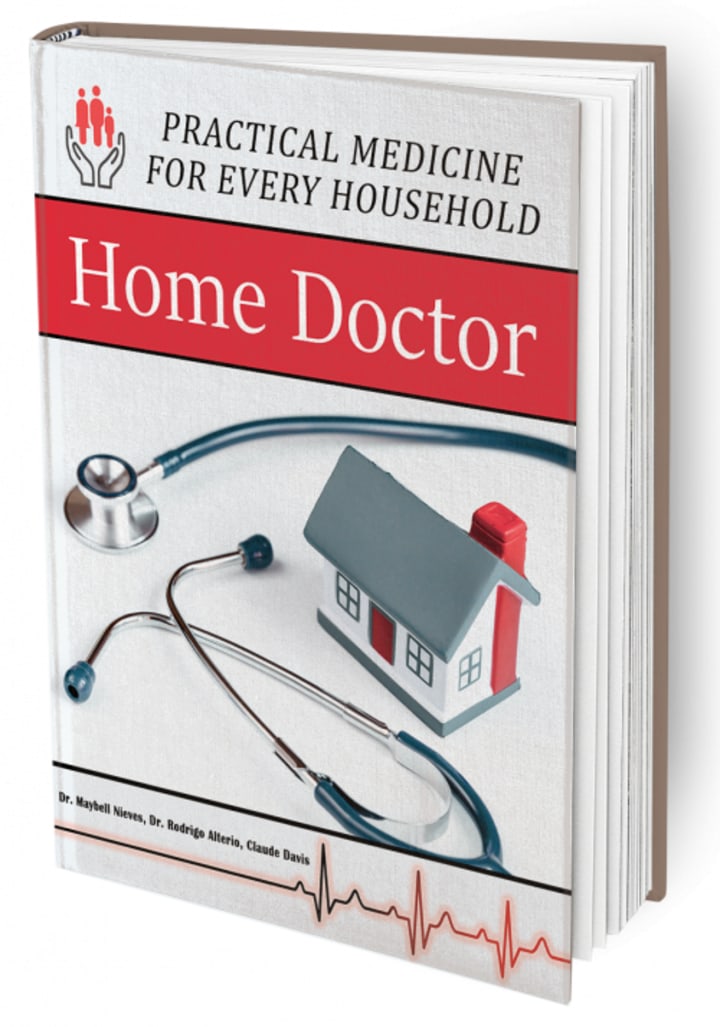
Digestive Issues And Prevention Advice Book: Get it hear
About the Creator
Samaraweera Nishantha Indunil
I'm Nishantha, a 36-year-old man.
I am currently working as a health professional under the Ministry of Health covering the scope of public health. I intend to share the knowledge under my scope with you with feature articles. thank you.






Comments
There are no comments for this story
Be the first to respond and start the conversation.